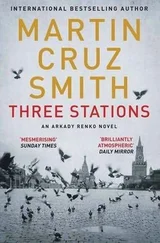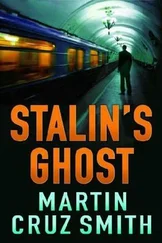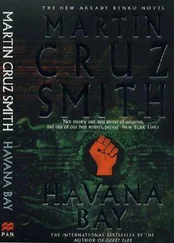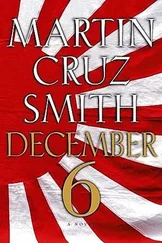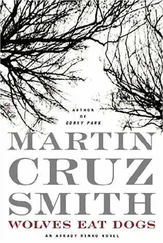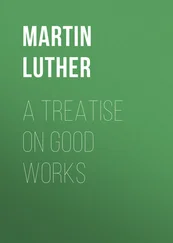Martin Smith - Stallion Gate
Здесь есть возможность читать онлайн «Martin Smith - Stallion Gate» весь текст электронной книги совершенно бесплатно (целиком полную версию без сокращений). В некоторых случаях можно слушать аудио, скачать через торрент в формате fb2 и присутствует краткое содержание. Жанр: Триллер, на английском языке. Описание произведения, (предисловие) а так же отзывы посетителей доступны на портале библиотеки ЛибКат.
- Название:Stallion Gate
- Автор:
- Жанр:
- Год:неизвестен
- ISBN:нет данных
- Рейтинг книги:4 / 5. Голосов: 1
-
Избранное:Добавить в избранное
- Отзывы:
-
Ваша оценка:
- 80
- 1
- 2
- 3
- 4
- 5
Stallion Gate: краткое содержание, описание и аннотация
Предлагаем к чтению аннотацию, описание, краткое содержание или предисловие (зависит от того, что написал сам автор книги «Stallion Gate»). Если вы не нашли необходимую информацию о книге — напишите в комментариях, мы постараемся отыскать её.
Stallion Gate — читать онлайн бесплатно полную книгу (весь текст) целиком
Ниже представлен текст книги, разбитый по страницам. Система сохранения места последней прочитанной страницы, позволяет с удобством читать онлайн бесплатно книгу «Stallion Gate», без необходимости каждый раз заново искать на чём Вы остановились. Поставьте закладку, и сможете в любой момент перейти на страницу, на которой закончили чтение.
Интервал:
Закладка:
Kitty didn't like maids re-ordering the bedroom. A four-poster stood over ashtrays, open books, loose butts, water glasses. There was a Picasso lithograph on the wall, a dishevelled bookcase. No white wires along the skirting board.
The study had a Spanish fireplace in the corner, a desk of spreading papers, two ashtrays of cigarette butts and a third ashtray with two pipes, a meerschaum and a briar. Hanging pictures of Krishna and a sailboat off a beach.
The nursery had been a sun porch and still had the yellow light of the porch. A crib at one end and a bed at the other. Teddy bears on a scatter rug. A case of children's books with a top row of German novels. Kitty employed a German nurse.
Joe returned to the living room, moving round the periphery and lifting chairs, tables, sofa. As he moved the bookcase, he saw the white wire that emerged from the edge of the floor, rose almost invisibly up the whitewashed wall and led into the back of the case. He searched through the records on the bottom shelf: Bach, Beethoven, Faure. He spilled out the books above: Austen, Unamuno, Jeune Fille Violane, Thermo-dynamique, Upanishads, The Interpretation of Dreams . Behind Freud was the microphone, a wire-mesh button no larger than a dime. He snapped it off.
Tracking the wire to the boiler room in the basement, he found a new electrical connection off the junction box and a radio hidden behind a bin of soft New Mexican coal. He took the radio, went back to the living room and neatened up the books. By the time he left there was no sign of his visit or the captain's, nothing but resonance, a fading disturbance like two trails in a cloud chamber.
13
The Utah sky was different. Scrubbed clean. Saline. Instead of vultures, gulls. Fort Douglas, Salt Lake City, was different from Los Alamos because Douglas was so quiet. No booms from a mesa. No Indians. No women. Just the olive drab lethargy of the rearmost echelon of the United States Army.
The motor pool was a Quonset hut with open wings of galvanized steel over shadows and the glow of welders. Joe and Ray Stingo waited at the pumps. A noon sun lifted the reek of petrol off the tarmac. Ray's pompadour, usually sculptured with Wildroot, hung like crepe.
"Chief, you should've fought."
"They asked for you and me."
"Why?"
Joe walked to the other side of the petrol pumps rather than argue. He and Ray had flown in from Santa Fe the night before and all the way Ray had asked the same question: why?
"The Texas kid killed Shapiro," Ray said.
"That's what I heard."
Ray followed Joe round an oil can.
"Captain Augustino can't have wanted you here."
"The captain never said anything to me about it." Joe hadn't spoken to Augustino since Oppy's cocktail party the week before. "Look, while Oppy's still in Washington, I'm available for this."
"But what about me?"
"You'll be okay."
A convoy rolled towards the pumps. Army sedan, truck, ambulance and tail sedan had started out the day before in Hanford, Washington, and had come 550 miles. Fort Douglas was where the teams switched. "Too late," Ray moaned.
The schedule was strict. As soon as the lead sedan was at the first pump, four CID lieutenants jumped out and a fresh quartet took their place. Mechanics swung wearily out of the repair truck, a slope-fendered Dodge 6x6. The two men Joe and Ray were replacing both pulled the ambulance handbrake and jumped out. Joe and Ray climbed in, Joe behind the wheel. The rear of the ambulance was green Army. No white cross. No cots, no stretchers, no medicine. Only two fold-down seats and, farther back and taking up most of the space, an open steel square, four feet to a side, bolted to the floor and braced to the walls. Restraining straps of 1,000 lb-test nylon reached in from the eight corners of the square and hooked on to a 50lb spun steel canister suspended at the centre. The canister was lined with graphite and lead, and bore, inside a hollow of moderating water, a ten-gram, lead-coated, stainless steel capsule of jelly-like plutonium nitrate that drivers called the slug. The two sergeants from Hanford had bright eyes and stubble and the air of men returned from the dead.
"Want some bennies?" One came over to Ray's window and offered a handful of white pills. Ray took three and swallowed them. "You better take this, too." He handed in the Tommy gun that the co-driver was supposed to carry.
"Secure the convoy!" the lieutenants shouted at each other. They were boys right out of college and straight into Intelligence and would never see war. As they ran around with .45s and submachine-guns they reminded Joe of the sort of kids who brought baseball gloves to big league games. Mechanics clambered into the truck. Its back was stuffed with ambulance, car and truck spare parts in case there was a breakdown on the way. The orders were - as always, from Groves - no stopping. "Let's for Chrissake go." Ray clutched the Tommy gun. Hair clung to the sweat on his forehead. His face had closed down to a bleak and dangerous glare. He refused to look back at the suspended, eight-armed canister riding in the rear of the ambulance.
"Wait a second, men."
A white-haired man in a tweed jacket and carrying a clipboard bounded out of the garage towards the ambulance.
"Santa!" Joe said.
"I'll kill him," Ray said.
Santa was the Hill psychiatrist. He'd always seemed to be part of the furniture at the lodge, an amiable headshrinker on hand to offer security-cleared emotional assurance to any longhair with the blues. Joe couldn't figure what Santa was doing at Fort Douglas. He expected the lieutenants to block Santa's way because no one outside convoy personnel was allowed near the ambulance, but the officers waved Santa on.
"Permission to come aboard?" Santa took a letter from the clipboard and handed it through Ray's window to Joe. The letter was a pass for Dr Delmore Bonney to accompany the drivers of Army ambulance YO3 from Fort Douglas to Site Y (Los Alamos), and the order was signed by both Oppy and Groves.
"I think you'd be more comfortable in one of the cars." Joe gave the letter back.
Santa shrugged happily.
"Orders are orders. Sometimes even civilians have to suffer."
"Sergeant Stingo isn't feeling too good. It could be infectious," Joe warned.
Santa raised white eyebrows.
"It could be psychosomatic."
Joe pushed open Ray's door. Ray leaned woodenly to one side so Santa could slip through to a fold-down seat. Already the lead sedan and truck, then ambulance and tail sedan were turning round the petrol pumps for the remaining 450 miles to New Mexico and the Hill.
"Nose wipes, boys." Santa handed up cotton swabs. "All part of the routine."
Joe and Ray stuck the swabs up their noses, then handed them back to Santa who dropped them into separate envelopes.
"It isn't routine for us to make this run," Joe said. "It isn't routine for you to be on it."
"We're bodyguards," Ray said through his teeth. "We're not guinea pigs. They got enough crazy truckers for this run."
"Why do you think they chose you, Sergeant Stingo?" Santa hunched over Ray's shoulder.
"Because they hate me."
"If they hated you they wouldn't have asked me to bring the nose wipes. That's to help check any respiratory radioactivity. When we arrive, they'll take a blood sample and perhaps burn your clothes. Would they take those precautions if they didn't care about you?"
"True," Ray relented.
"You just need a ride from Salt Lake City?" Joe asked as Santa moved to his shoulder. "Why are you here?"
"I'll tell you why they hate me," Ray interrupted. The amphetamines fuelled his paranoia and turned the whites of his eyes pink. "For the first time in my life I'm ahead of the game. My father runs a garbage truck, my three brothers run garbage trucks, and they make $50 a week. I got $10,000 in poker money. I'm getting out of this fucking war with both legs and both arms. When I go back to Jersey I can buy a liquor store. I'll get my own fighters, maybe I'll manage. Get a boat at the shore, get married, have kids. They don't want me to have that."
Читать дальшеИнтервал:
Закладка:
Похожие книги на «Stallion Gate»
Представляем Вашему вниманию похожие книги на «Stallion Gate» списком для выбора. Мы отобрали схожую по названию и смыслу литературу в надежде предоставить читателям больше вариантов отыскать новые, интересные, ещё непрочитанные произведения.
Обсуждение, отзывы о книге «Stallion Gate» и просто собственные мнения читателей. Оставьте ваши комментарии, напишите, что Вы думаете о произведении, его смысле или главных героях. Укажите что конкретно понравилось, а что нет, и почему Вы так считаете.


